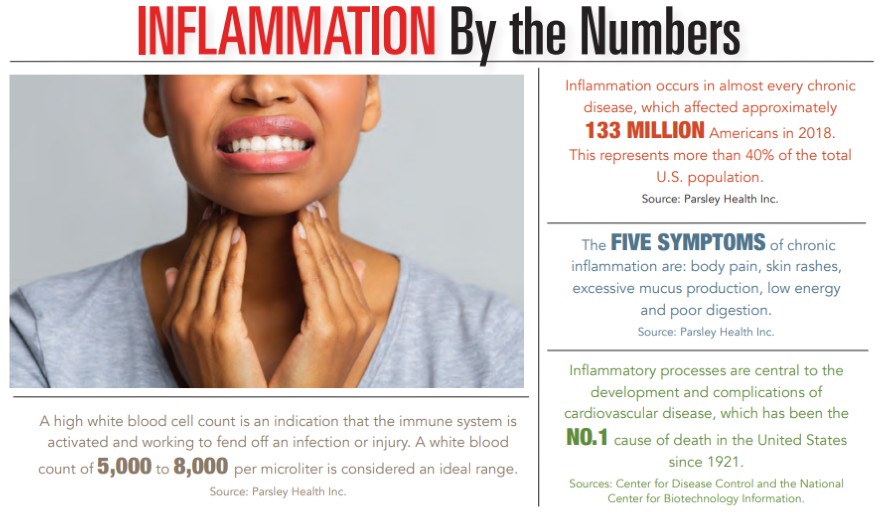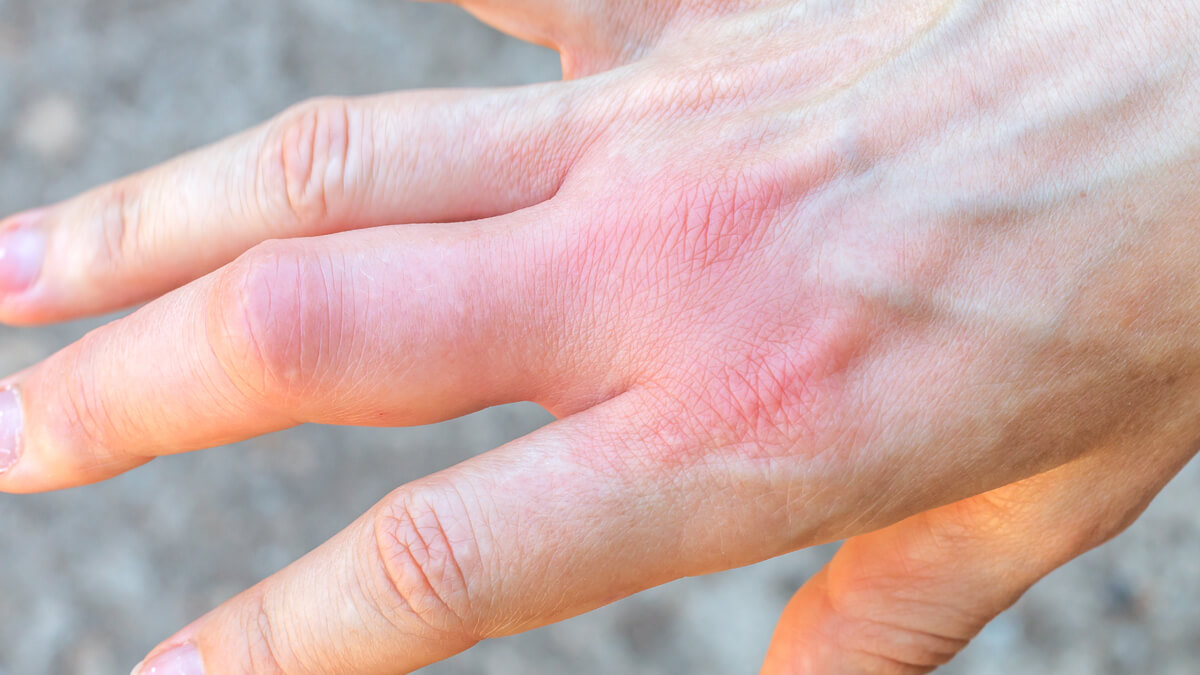Inflammation – the name alone carries visions of redness, swelling, hurting bones and joints and a human body yelling for help.
But inflammation is not only a friend to your body, it is the first sign of your body’s efforts to heal either an injury or illness. And your best chance of recovery begins with knowing which of its two types you have.
“Inflammation overall is a good thing, as it helps the body to fight off infections and to heal wounds,” said Gary S. Gilkeson, M.D., a rheumatologist affiliated with the Ralph H. Johnson Veterans Affairs Medical Center. “It becomes a bad thing when the inflammation gets out of control.”
The Good: Acute Inflammation
You’re playing basketball and jam your middle finger. You suddenly experience pain, swelling, redness and heat, and your finger can’t bend or function normally. These are signs of acute inflammation, which comes on rapidly after an injury and lasts for a relatively short time. It is your body’s way of telling you that help is already at hand and repairs are underway. Other examples include turning an ankle, experiencing a gout attack or the response to pneumonia.
In these instances, Dr. Gilkeson said the inflammation acts as a first-line defense for the body until further action can be taken.
“The inflammation resolves with treatment of the gout and antibiotics for the pneumonia,” he said.
And while the inflammation might seem serious in the moment, acute injuries would be a lot worse without it, said Dalal Akoury, M.D., founder of AWAREmed Health and Wellness Resource Center in Johnson City, Tennessee, which services the Greenville area in South Carolina.
“Let’s imagine you have an injury to your knee – within just a few moments the site will start to swell and may be slightly red and warm,” Dr. Akoury said. “This is a normal response as your body sends in extra blood and a variety of different cells to protect the injured structures and tissues.”
Dr. Gilkeson added that injuries with acute inflammation will almost always heal on their own.
“Inflammation at a site of an injury is needed to attract cells to fight the infection or cancer and to recruit the cells that will repair the damage,” he said.
The Bad: Chronic Inflammation
However, when an acute response fails to heal a bodily injury, the inflammation surrounding it can often become chronic – lasting months or years as your body works to find a solution.
Dr. Gilkeson said this condition is usually due to a chronic infection or an autoimmune disease, such as multiple sclerosis, rheumatoid arthritis with inflammation in the joints or inflammation in the lungs and the body as a whole from a COVID infection.
“The immune system is trying to get rid of the virus through inflammation, but, in doing so, causes injury to the lungs,” he said. “Drugs we use to treat rheumatoid arthritis are effective in controlling the overactive inflammation in serious COVID lung involvement, leading to improved survival.”
Dr. Akoury added that chronic inflammation can also cause your body to “mistake its own healthy tissues as an invader.”
“And higher levels of chronic inflammation have been linked to a variety of conditions,” she said.
These conditions include heart disease, obesity, asthma, peptic ulcers, hepatitis, lupus, Crohn’s disease, fibromyalgia and others.
“Some people have immune deficiencies, which makes them highly susceptible to infections and cancer,” Dr. Gilkeson said. “These diseases are treated with medications that boost the control side of the immune system. And 10% of people develop an autoimmune disease where the immune system’s control mechanisms are not quite up to speed, allowing the immune system to attack self cells and tissues.”
What’s the best way to deal with chronic inflammation? Both Drs. Gilkeson and Akoury said higher levels of regular medical treatment are necessary.
“Talk to your medical provider for help deciding how to manage a sudden case,” Dr. Akoury said. “It could be easy to mistake inflammation for infection, but it’s quite the opposite.”
Dr. Gilkeson added that as inflammation of any condition increases, “our immune cells are secreting the chemicals which attract more cells and more inflammation until the infection is controlled.”
“Inflammation itself is a component of the overall immune system in the body,” he concluded. “And given the incredible complexity of the system, it is amazing that for most of us, the system works as it is intended.”
By L. C. Leach III

